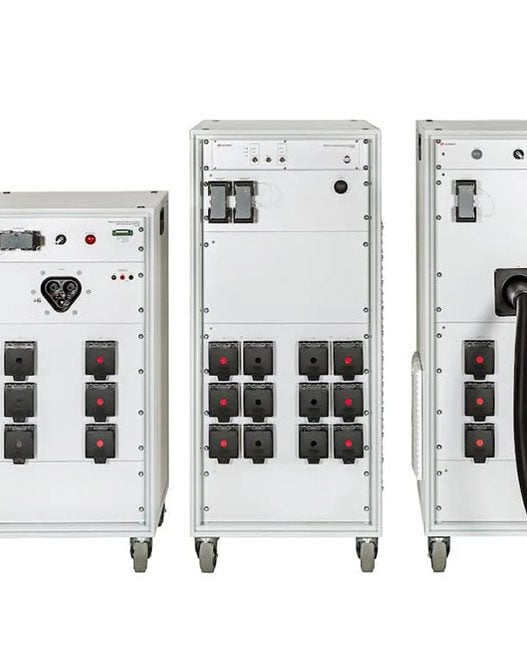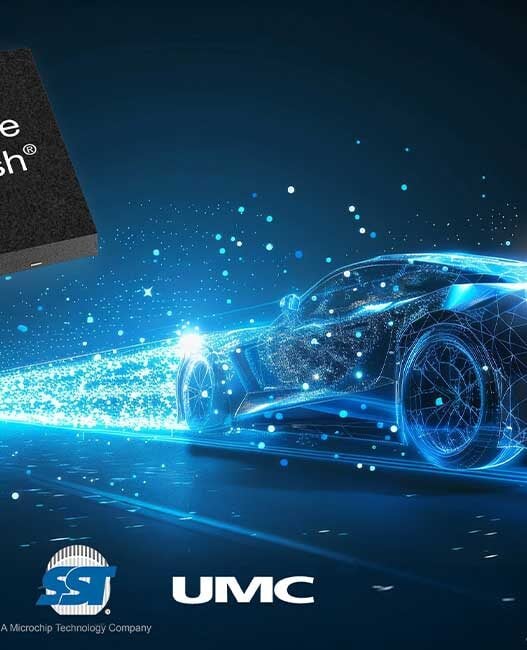The emergence of SDVs signals both promising and challenging avenues ahead. An imminent shift towards a software-defined approach is driven by the demand for upgradable features and new revenue streams across vehicle fleets. The widespread presence of hardware-defined variants across various vehicle classes has proved to be impractical for maintenance within the contemporary vehicle architecture development flow.
The S32 CoreRide platform integrates NXP’s S32 compute, networking, system power management, and ready-to-deploy software from the company’s software partner ecosystem. Additionally, the company is introducing its S32 CoreRide solution for central compute, which utilises NXP’s new S32N family of vehicle super-integration processors. This solution provides safe and scalable combinations of real-time processing, applications processing, and vehicle networking.
NXP’s S32 CoreRide platform marks a significant advance in overcoming the integration challenges of software and hardware that hinder the rapid adoption of SDVs. Automakers have faced difficulties in transitioning functions from the traditional multi-ECU approach to zoned or centralised processing, due to inconsistencies in software and architecture. The new platform amalgamates NXP’s hardware portfolio with software from the world’s foremost automotive experts, creating a comprehensive ecosystem. This includes contributions from ArcherMind, Blackberry QNX, Elektrobit, Green Hills Software, Sonatus, Synopsys, TTTech Auto, Vector Informatik GmbH, and Wind River, alongside tier-1 suppliers.
Utilising the scalable S32 compute within the S32 CoreRide platform enables Original Equipment Manufacturers (OEMs) to streamline Electronic Control Units (ECUs) and develop versatile architectures that extend across various vehicle classes and generations. The platform offers the capability to segregate vehicle functions, ensuring that interference is minimised between applications while also allowing for the dynamic reallocation of resources to prevent performance degradation over time. Such integration and adaptability propel carmakers and tier-1 suppliers forward in their development journey, as they can now leverage the S32 CoreRide platform to concentrate more on differentiation and the creation of application software that supports new business models.
“The automotive industry’s shift to software-defined vehicles presents unprecedented levels of disruption,” said Henri Ardevol, Executive Vice President, and General Manager, Automotive Embedded Systems at NXP. “In the last decade, many industries have successfully adopted faster innovation cycles and effectively achieved higher performance at lower cost through tight integration of silicon and software. With NXP’s S32 CoreRide platform, automakers can now radically transform their approach to SDV development by adopting a much faster, open development path.”
First S32 CoreRide solutions for central compute based on new S32N family
NXP also introduces its first solutions in the S32 CoreRide platform: the central compute solution utilising the new S32N family of vehicle super-integration processors, alongside advanced vehicle networking, system power management, and pre-integrated software from the S32 CoreRide open partner ecosystem. This central compute solution provides automakers with a secure and straightforward method to integrate numerous cross-vehicle functions. These functions operate in environments ready for isolation, facilitated by the automotive-grade hardware isolation capabilities of the S32N family.
Designed specifically for the utmost in automotive functional safety, the scalable S32N family provides various combinations of real-time and applications processing cores, catering to a broad spectrum of automakers’ central computing requirements. Every S32N device incorporates an advanced hardware security engine and a multi-port Time-Sensitive Networking (TSN) Ethernet switch and CAN hub. Additionally, certain models offer support for Ethernet packet acceleration, AI/ML acceleration, and cost-efficient, inter-compute PCI Express services.
The S32 CoreRide central compute solution is tailored to fulfil network bandwidth and power delivery needs while aiming for ISO 26262 ASIL D functional safety standards. It enables the advantages of SDVs by offering vehicle data intelligence, which simplifies the deployment and monetisation of improved functionalities and new services throughout the lifespan of a vehicle.
Representatives from NXP’s ecosystem shared their thoughts on the new platform:

From left to right: Henri Ardevol, Executive Vice President, and General Manager, Automotive Embedded Systems at NXP; Dr. Stefan Poledna, CTO, and Co-Founder at TTTech Auto; Dr. Matthias Traub, Director – Product Line Embedded Software and Systems at Vector Informatik GmbH; Dan Mender, VP Business Development at Green Hills Software; Xiaodong Zou, EVP of Engineering at ArcherMind, and panel moderator Junko Yoshida
“ArcherMind warmly welcomes the arrival of NXP’s S32 CoreRide platform. A common foundation for the creation of software-defined vehicles radically simplifies integration and allows us to focus on solving the software developers pain points with our FusionWise middleware software solution, adding value for our customers and their end customers,” said Xiaodong Zou, EVP of Engineering at ArcherMind.
“Green Hills is pleased to be an essential integration partner with NXP, offering automotive OEMs and tier-1 suppliers the broadest portfolio of safety and security- certified software solutions in the industry, integrated and optimised for NXP’s S32 CoreRide platform. Our production-proven RTOSes, virtualisation services and advanced development tools enable customers to elevate their use of the S32 CoreRide platform by enabling ECU consolidation, accelerating complex system development, and reducing cost and time to market for the core vehicle functions of mixed-criticality multi-core SDV architectures,” said Dan Mender, VP Business Development at Green Hills Software.
“The coming generations of super high performance SoCs with NXP’s open S32 CoreRide platform will fuel and drive the SDV transition. We will provide our Modular MotionWise platform to enable a much faster and more robust integration of the increasingly complex SDV software. This includes standard QM software as well as safety critical software up to ASIL D. This simplification of mixed criticality software integration will enable developers to deliver customer relevant functions much faster,” said Dr. Stefan Poledna, CTO, and Co-Founder at TTTech Auto.
“A software-defined vehicle relies on efficient platform-building and fast integration. These can be achieved through pre-configuration and automated workflows in a personalised software factory. We at Vector have the necessary tools, embedded software, and know-how to fully support NXP’s initiative. This close collaboration will ensure the seamless pre-integration of our Base Layer on NXP’s S32 CoreRide platform to simplify the development process on customer side. By shifting the integration process, OEM’s and tier-1 suppliers can concentrate on their specific application, saving time and resources,” said Dr. Matthias Traub, Director – Product Line Embedded Software and Systems at Vector Informatik GmbH.
NXP will show the first S32N processor in action, showcasing its value propositions and use cases for software-defined vehicle central compute at NXP’s booth (Hall 4A-222) at embedded world in Nuremburg, Germany April 9-11th. There will also be a technical session related to the S32N family entitled ‘Processor Architecture and Software Evolution to Accelerate Software-defined Vehicle Implementation’ at the show on April 10th at 5pm.















